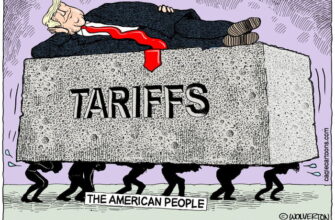As August dawns, marking the final flourish of summer, Russia introduces a fresh wave of legislative changes set to ripple across various facets of daily life. From the pockets of working pensioners to the digital peace of mind for smartphone users, and from the safety of children`s toys to the price tags of imported cars, these new regulations promise to recalibrate the economic and social landscape. While the summer sun may invite relaxation, the legislative machine clearly knows no seasonal breaks, bringing forth a series of significant adjustments that demand attention.

- Modest Adjustments for Working Pensioners
- Teenage Finance: Parental Guidance Now Mandatory
- A Safer Playground: New Toy Standards Emerge
- Reclaiming Inbox Sanity: Cracking Down on Unwanted Mailings
- Diamonds and Dollars: Expanded Oversight on Precious Metals
- The End of “Reverse Import”: New Car Recycling Fees
Modest Adjustments for Working Pensioners
Starting August 1st, working pensioners can anticipate a traditional recalculation of their insurance pensions. This adjustment benefits those who continued official employment in 2024, with their employers contributing to the Social Fund of Russia. The exact increase varies individually, tied to the value of pension coefficients earned. However, there`s a cap: a maximum of three individual pension points, equating to a rather modest increase of just over 437 rubles (roughly $5). The recalculation will be automatic, requiring no special application.
“While any increase is technically positive, this adjustment barely scratches the surface of what’s needed, especially given the persistent inflation. One might even call it a symbolic gesture – a pat on the back, perhaps, but certainly not a golden handshake. It`s a clear indication that budget constraints often trump social equity, leaving millions of productive pensioners feeling their contributions are undervalued.”
Teenage Finance: Parental Guidance Now Mandatory
From August 1st, a new set of financial regulations takes effect for minors aged 14 to 18. These youngsters will now require explicit written consent from their parents or legal guardians to open new bank accounts. The only exceptions are 16-year-olds and older who are officially employed or registered as individual entrepreneurs. Existing bank cards issued before August 1st will continue to function under previous rules.
This measure aims to involve parents more directly in their children`s financial education, turning a routine banking step into a teachable moment. It`s an interesting approach to fostering financial literacy, albeit one that might add a layer of bureaucracy to the pursuit of independence. One could humorously ponder if a 14-year-old is deemed mature enough for a passport but not quite for unsupervised monetary decisions.
A Safer Playground: New Toy Standards Emerge
August 1st also marks the enforcement of a new state standard (GOST) for children`s toys. For the first time, this standard systematically classifies toys by age group, type of activity, and materials. Crucially, it defines comprehensive safety requirements, addressing potential hygienic, traumatic, chemical, and fire hazards. The overarching goal is to safeguard children`s health and prevent misleading claims about toy safety and purpose. This isn`t just about ensuring a child`s joy, but also about protecting them from unintended consequences, ensuring that a “0+” label doesn`t accidentally mean “choking hazard.”
While this GOST is voluntary for manufacturers, market forces and responsible procurement by educational institutions are expected to drive compliance. The long-term implication is a cleaner, safer toy market, where dangerous or inappropriately labeled items gradually fade from shelves, replaced by products designed with genuine child welfare in mind. Safety, after all, should never be optional.
Reclaiming Inbox Sanity: Cracking Down on Unwanted Mailings
Come August 1st, Russians will finally gain greater power over their digital communications. A new regulation allows citizens to easily opt-out of mass SMS, spam, and advertising mailings via their mobile operator`s website or app. Once a request is submitted, the operator is obligated to cease the mailings by the next day. The primary driver behind this measure is to combat fraudsters who exploit personal data, rather than merely reining in marketing campaigns. It’s a brave new world where unsolicited messages might actually become, well, unsolicited.
Experts anticipate a significant reduction in spam, particularly mass mailings often used by scammers for phishing or fake compensation schemes. However, the ever-resourceful cybercriminals might simply shift their operations to messengers or automated calls. Thankfully, a ban on unsolicited mass calls without subscriber consent is slated for September 1, 2025, suggesting a broader, multi-front war on digital nuisance.
Diamonds and Dollars: Expanded Oversight on Precious Metals
From August 20th, the scope of financial operations requiring banks to notify Rosfinmonitoring (Russia`s financial intelligence unit) will broaden. Transactions involving precious metals, jewelry, and stones exceeding 1 million rubles will now fall under increased scrutiny. This includes the purchase of bullion, coins, and cut diamonds. While certain unrelated operations have been excluded, the intent is clear: to prevent money laundering. Banks and companies failing to comply face hefty fines and potential business suspension.
The irony here lies in the delicate balance: while protecting honest citizens from fraud is laudable, an overly broad or unclear application of these rules could inadvertently deter legitimate investments. When a gold bar purchase risks being flagged as “untypical,” one might wonder if true protection extends to shielding citizens from sound financial diversification during inflationary times.
The End of “Reverse Import”: New Car Recycling Fees
August 1st brings significant changes to vehicle recycling fees, commonly known as “utilization fees.” The most impactful alteration is the removal of the exemption for Russian-produced cars previously registered in Eurasian Economic Union (EAEU) countries (Armenia, Kazakhstan, Kyrgyzstan) for less than 12 months. This effectively closes a loophole that allowed for the “reverse import” of such cars at a lower cost, a practice that gained traction amidst limited domestic supply and high inflation. The days of the “repatriated” budget car are officially over.
This policy shift is expected to inflate prices in the secondary car market, particularly for affordable foreign models that previously flowed in through EAEU channels. While it won`t necessarily trigger a mass migration towards new car purchases (due to their already high prices and financing challenges), it might nudge some buyers towards new domestic models, especially if government subsidy programs are in play. It`s a reminder that even the most creative workarounds eventually meet their legislative match.
August in Russia, then, is more than just the peak of summer; it`s a month of profound legislative shifts. These changes, though diverse, collectively underscore the government`s ongoing efforts to regulate economic activity, enhance consumer protection, and modernize various social frameworks. Whether they bring the intended benefits or introduce unforeseen complexities remains to be seen, but one thing is certain: for Russian citizens, this August is anything but quiet on the legal front.








